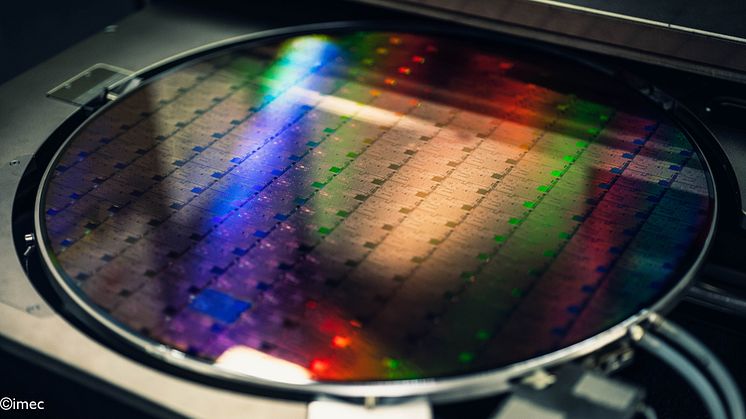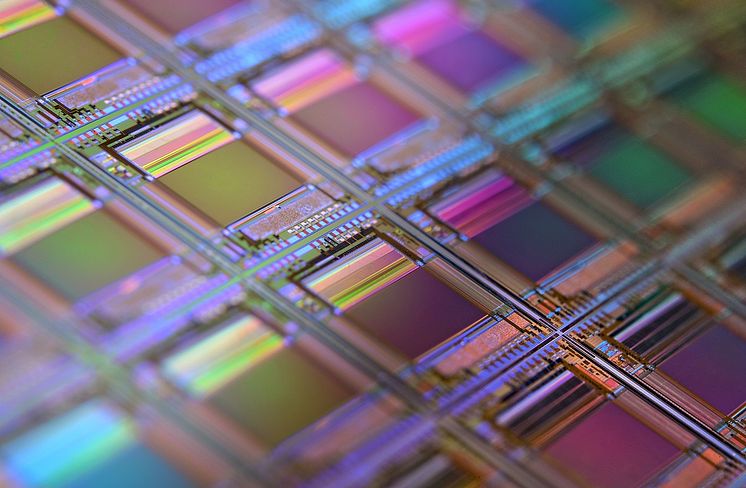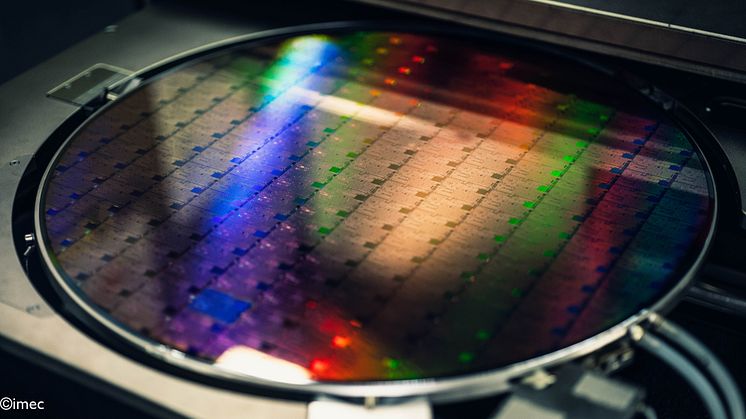
Press release -
2D Experimental Pilot Line offers developers the chance to test graphene-based sensors on large scale and at low cost
The 2D Experimental Pilot Line(2D-EPL), a project grown from the Graphene Flagship, has launched its first customisable wafer run. As one of five multi-project wafer (MPW) runs, this first phase targets sensor applications. Companies, universities and research institutes can include their designs as dies on joint wafers, to test their ideas for devices on a larger scale at relatively low costs.
The 2D-EPL is a €20 million project aiming to pioneer the fabrication of prototype electronics and sensors based on graphene and related materials (GRMs), and at integrating them into established silicon semiconductor platforms. While doing so, the project will also refine and scale up the manufacturing process of graphene-based electronics, including developing critical tools, materials and processes.
The 2D-EPL includes partners from across the whole value chain – from tool manufacturers to semiconductor fabrication lines – including Chalmers University of Technology, Sweden; Aixtron, Germany and United Kingdom; Interuniversity Microelectronics Centre (imec), Belgium; AMO, Germany; VTT, Finland; Süss MicroTec, Germany; Graphenea, Spain; Micro Resist Technology, Germany; Innovations for High Performance Microelectronics (IHP), Germany, and Oxford Instruments, United Kingdom.
The 2D-EPL project will offer several kinds of integration services, including multi-project wafer (MPW ) runs. The first run will be hosted in AMO GmbH’s 400-m2 state-of-the art cleanroom. Target applications are bio, gas, or chemical sensor, hall sensor or photodetector applications, taking advantage of graphene’s extreme sensitivity to the environment. The baseline process is a graphene field effect transistor (GFET), with several customization options.
The MPW run offers participants a unique chance to acquire GFETs on dies manufactured to their own designs. The cost of production is shared between the 2D-EPL project and the customer, meaning that companies, universities and research institutes can access this technology at a much lower price point. At this time, the quantities available are suited for prototyping, research and development.
“This wafer run is a chance for academic groups, start-ups and other companies to test novel ideas for 2D material devices on a larger scale at relatively low costs,” explained Gordon Rinke, business developer at AMO. “As a result, they can collect more data of their devices and directly test a larger production volume — a necessary step to bringing a product to the market.”
“The MPW runs are an important step in the 2D-EPL project,” added 2D-EPL Division Leader, Cedric Huyghebaert. “Not only do they provide customers in both industry and academia with access to graphene-integrated wafers, but they offer an enormous learning opportunity with regards to the manufacturing of these devices. We plan to test and analyse every stage of the production process to scale up and improve the manufacturing of graphene-integrated electronics.”
The dies on the multi-project wafer are customisable within a set of specifications— size and certain critical dimensions are fixed, for example — and must be designed in accordance with the process design kit (PDK). AMO GmbH will support and collaborate with successful applicants on the design of the dies and offers a library of device designs to be used as a basis for modification.
“Electronics based on 2D materials can be a real vehicle for Europe to gain shares in the high-tech sector, but what is needed is the development of a whole ecosystem around this topic – from tool developers to potential customers. This is what the 2D-EPL is trying to achieve. At AMO, we are really excited to contribute our experience and our fabrication capabilities to this major project”, says Max Lemme, scientific director of AMO GmbH.
The first 2D-EPL MPW run opened for applications on 1 February 2022 and the call closes on 30 June 2022. The manufacturing stage of the MPW run will take place between 1 September and 31 October 2022.
To apply to be part of the 2D-EPL’s first MPW run, visit: 2dpilotline.euOr, follow these links for more information on the 2D-EPLproject, the Graphene Flagship or AMO.
Topics
Categories
About the Graphene Flagship
The Graphene Flagship is research, innovation and collaboration.
Funded by the European Commission, the Graphene Flagship aims to secure a major role for Europe in the ongoing technological revolution, helping to bring graphene innovation out of the lab and into commercial applications. The Graphene Flagship gathers nearly 170 academic and industrial partners from 22 countries, all exploring different aspects of graphene and related materials. Bringing diverse competencies together, the Graphene Flagship facilitates cooperation between its partners, accelerating the timeline for industry acceptance of graphene technologies. The European Commission’s FET Flagships enable research projects on an unprecedented scale. With €1 billion budgets, the Graphene Flagship, Human Brain Project and Quantum Flagship serve as technology accelerators, helping Europe to compete with other global markets in research and innovation. With an additional €20 million investment, the European Commission has now funded the creation of an experimental pilot line for graphene-based electronics, optoelectronics and sensors.



